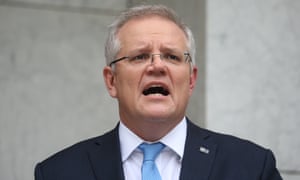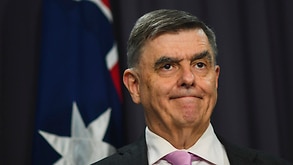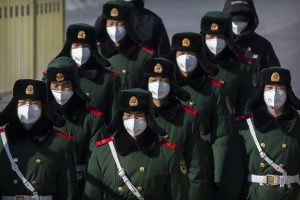Even the ABC thinks the Commonwealth and state governments, and the relevant public servants, were responsible for letting the Wuhan Virus into Australia, when they failed to ban flights from China in January 2020:
Pandemic: The fight to contain coronavirus
Our leadership has attempted to portray the contagion in Australia as a Black Swan event. Unfortunately Nicholas Taleb, who coined the term, disagrees:
Nassim Nicholas Taleb, the best-selling author, trader and academic has criticised those who describe the ongoing Covid-19 pandemic as a “black swan” and condemned the US government’s recent stimulus measures.
Taleb rose to prominence after the global financial crisis of 2008, with his prescient book on the extreme impact of rare and unpredictable events, The Black Swan, becoming an international bestseller.
In a recent piece co-authored with Mark Spitznagel, the former options trader describes the ongoing coronavirus outbreak as a “white swan: something that would eventually take place with great certainty.”
He adds: “Such [an] acute pandemic is unavoidable, the result of the structure of the modern world; and its economic consequences would be compounded because of the increased connectivity and over-optimisation.” Taleb points to his work for the government of Singapore, which had developed a precise plan “as early as 2010”.
Nassim Nicholas Taleb, the best-selling author, trader and academic has criticised those who describe the ongoing Covid-19 pandemic as a “black swan” and condemned the US government’s recent stimulus measures.
Taleb rose to prominence after the global financial crisis of 2008, with his prescient book on the extreme impact of rare and unpredictable events, The Black Swan, becoming an international bestseller.
In a recent piece co-authored with Mark Spitznagel, the former options trader describes the ongoing coronavirus outbreak as a “white swan: something that would eventually take place with great certainty.”
He adds: “Such [an] acute pandemic is unavoidable, the result of the structure of the modern world; and its economic consequences would be compounded because of the increased connectivity and over-optimisation.” Taleb points to his work for the government of Singapore, which had developed a precise plan “as early as 2010”.
The "Black Swan defence" was never tenable; Morrison & Co cannot escape liability by spending billions of our money in an attempt to conceal blame:
END
TO BE READ WITH
Taleb: Covid-19 is not a ‘black swan’
By Lawrence GashMarch 27, 2020, 11:01 PM GMT+11
Author and trader warns against further corporate socialism
Nassim Nicholas Taleb
Nassim Nicholas Taleb, the best-selling author, trader and academic has criticised those who describe the ongoing Covid-19 pandemic as a “black swan” and condemned the US government’s recent stimulus measures.
Taleb rose to prominence after the global financial crisis of 2008, with his prescient book on the extreme impact of rare and unpredictable events, The Black Swan, becoming an international bestseller.
In a recent piece co-authored with Mark Spitznagel, the former options trader describes the ongoing coronavirus outbreak as a “white swan: something that would eventually take place with great certainty.”
He adds: “Such [an] acute pandemic is unavoidable, the result of the structure of the modern world; and its economic consequences would be compounded because of the increased connectivity and over-optimisation.” Taleb points to his work for the government of Singapore, which had developed a precise plan “as early as 2010”.
While the city-state may be heading for its first recession in 20 years due to its exposure to the winds of global markets, Singapore has relatively few cases. By swiftly implementing strict border controls, rigorous testing and meticulous tracing of known carriers, the densely populated country of 5 million people, only has 683 confirmed cases and a total of two deaths.
Although Taleb recognises the need to save those leading American companies affected by the coronavirus outbreak, he states that there will be “ethical economic and structural problems associated with the details of the execution”.
Taleb questions why taxpayers should save firms which spent their cash on stock buybacks and observes: “Such bailouts punish those who acted conservatively and harms them in the long run, favouring the fool and the rent-seeker.”
Specifically, he stresses the need to learn from the bailout of 2008-9, which he dubs “a blatant case of corporate socialism” and to understand that “bailing out individuals based on their needs is not the same as bailing out corporations based on our need for them.”
In emphasising that, unlike major corporations, small businesses and the self-employed “cannot afford lobbyists and will be ignored”, it would appear that Taleb is not hopeful that the landmark $2trn stimulus package currently making its way through the US senate will be any different from those that went before.
FURTHER READING: Covid-19 pandemic to push Singapore into recession despite low number of infections
FURTHER READING: The black swan theory: What it is, and how to use it





